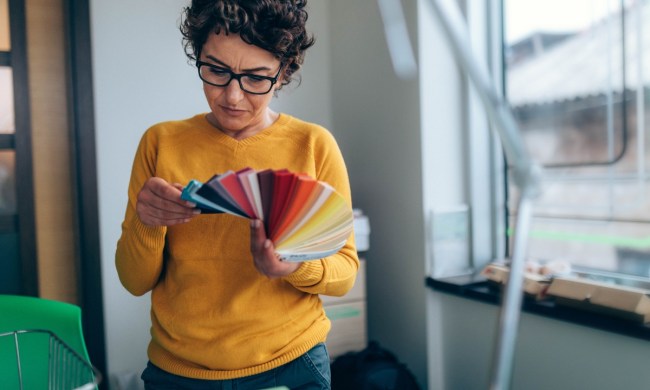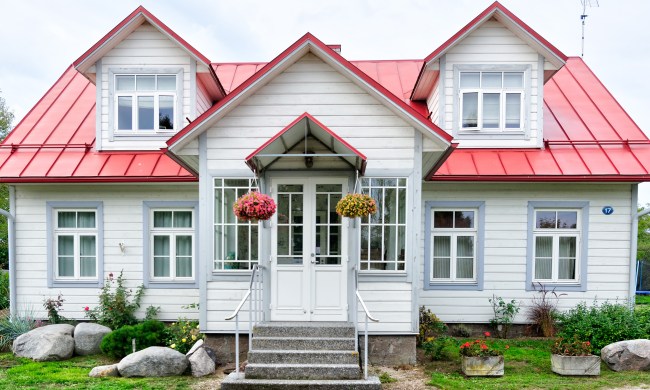
There are so many practical uses for white vinegar that go way beyond an ingredient for salad dressing or brining. Vinegar has long been used as a natural cleaning option, beauty product, and overall household miracle worker. You may have heard your grandparents offering advice to use vinegar for nearly any household obstacle. And to this day, many people tout its numerous benefits, uses, and applications. If you want an idea of some of the incredible ways white vinegar can benefit you and your household, we’ll list a few below.
Just a few of the many out-of-box uses for white vinegar:
- All-purpose cleaning spray
- Soap scum remover
- Hair clarifier
- Candle wax remover
- Weedkiller
- Insect repellent
- Flea spray for pets
- Carpet stain remover
- Stainless steel cleaner
- Showerhead cleaner
- Garbage disposal deodorizer
- Odor remover
- Sticker remover
- Coffeemaker cleaner
- Shoe cleaner
We could go on and on about vinegar. Instead, we’re going to focus on its benefits for your washing machine. With so many trending tutorials about using vinegar to obtain cleaner clothes, many homeowners are left with dozens of questions. Is vinegar in washing machines safe? Is vinegar a good fabric softener? Or is this all a myth? Let’s explore.
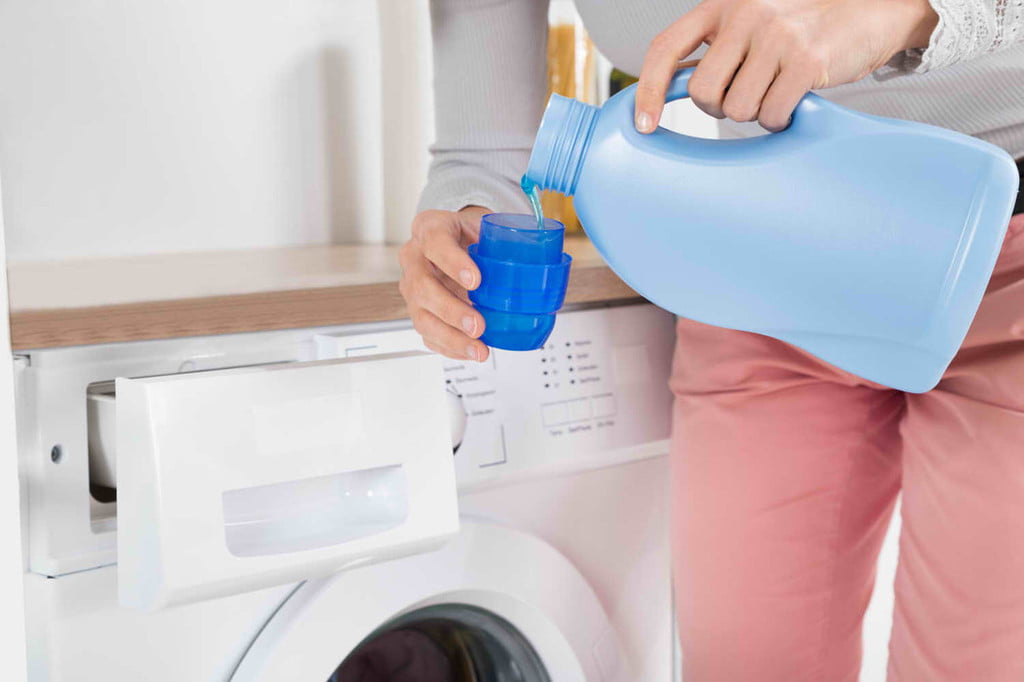
Why you should make distilled white vinegar a staple in your laundry room
Safe to use in both standard and high-efficiency washers, vinegar is beneficial to septic tanks and good for the environment. Vinegar contains acetic acid that brightens, softens, and eliminates odors in your laundry.
When buying vinegar for laundry use, always choose distilled white vinegar. It is free from natural plant dyes that can stain clothes, and it’s also less expensive than other types of vinegar. Distilled white vinegar, sometimes labeled as cleaning vinegar, is produced from the second fermentation of dilute distilled alcohol made from grain or the starch from corn, rice, barley, or potatoes.
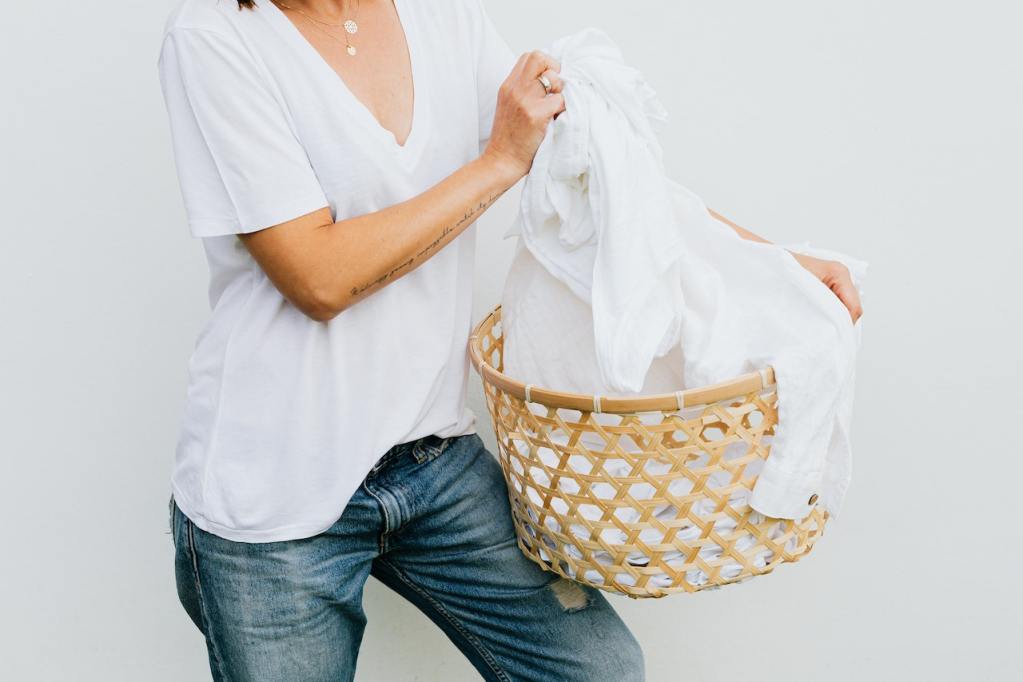
Popular ways to use vinegar in your washing machine
Use it in place of fabric softener
Distilled white vinegar is a natural fabric softener that won’t leave residue on your laundry. Add a couple of drops of lavender or another essential oil to the bottle of vinegar if you like your fabric softener to have a light scent. Unlike commercial fabric softeners with chemical ingredients that interfere with the flame retardancy of children’s clothing, distilled white vinegar is safe and hypoallergenic for all children’s clothing. Simply add a half cup to the final rinse cycle.
Vinegar can brighten clothes
Just a half cup of distilled white vinegar at the start of the rinse cycle or in the fabric softener dispenser will result in brighter colors. The acetic acid in vinegar is strong enough to residues left by detergents but mild, so it won’t harm fabrics.
To whiten dingy white cotton clothing or dishcloths, add a cup of white distilled vinegar to a pot of water. Boil and allow the dingy items to soak overnight and then launder as usual. For people looking for alternatives to bleaching their white fabrics, this can be a great solution.
Use it to banish mildew odor
Ever leave a load of wet clothing and forget about it? Then you know that nasty moldy smell. To get everything smelling fresh again, fill the washer with hot water, and add two cups of distilled white vinegar directly into the machine. Run a complete wash cycle and then repeat a second cycle, adding detergent for the second cycle.
Fight underarm odor and stains with vinegar
Keep a spray bottle filled with distilled white vinegar in the laundry room to help remove perspiration stains and odor on washable clothing. Spray the vinegar directly on the fabric, let sit for 10 minutes, and toss into the washing machine for the regular wash cycle. The vinegar helps cut through residual deodorant on clothing and prevents yellowing of the underarm area.
Helps black clothing stay black
Soap and detergent residue can make washable black clothing look dull. Adding a half cup of distilled white vinegar to the final rinse cycle can keep black clothes looking black.
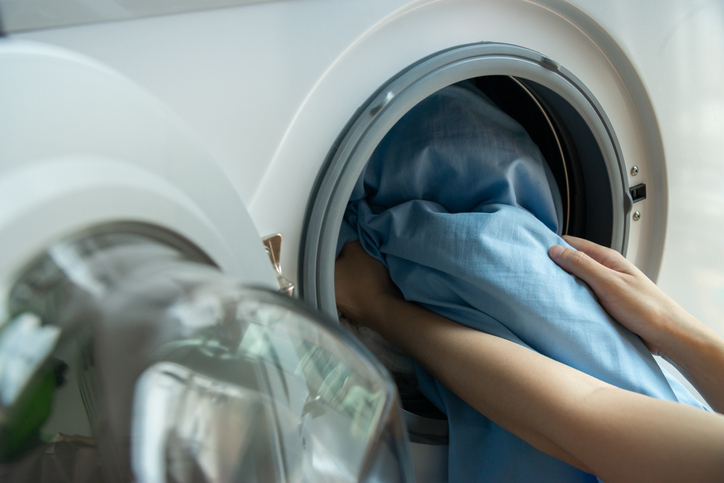
Vinegar is good for your washing machine, too
Soap scum from laundry detergents and mineral deposits from water can build up in hoses, restricting water flow and performance. Run a wash cycle with an empty washing machine 4x per year, using hot water and two cups of distilled white vinegar. Place distilled white vinegar in automatic detergent or fabric softener dispensers to dissolve built-up residue that limits your washing machine’s performance.

Can you use vinegar and laundry detergent together?
Typically, it’s better to keep vinegar usage and detergent separate when washing your clothing. This is because some detergents require a specific pH for optimal performance, and vinegar’s acidic nature can alter the capabilities of your detergent. To avoid any trouble, most experts suggest you use both products separately.
To do so, you can wash your clothing as normal using your preferred detergent. Then, before the machine enters the rinse cycle, add vinegar to the load or via the fabric softener compartment. This allows you to have the benefits of both products for your laundry without any oily buildup.
Additionally, if you only need vinegar for a couple of items, you can spritz or apply the liquid to individual pieces of clothing before running them through a normal washing cycle with your preferred detergent. The goal here is to use vinegar in a small enough quantity that it won’t impact the results of your washing when the two products “mix.”
Vinegar has long been a household staple for its versatility as both a food product and a cleaning agent. As more people explore “going green” and look for nonchemical ways to clean their homes and clothing, distilled white vinegar is a practical and affordable option. Good for the environment and effective in a variety of different ways, adding distilled white vinegar to the assortment of products in your laundry room makes sense for the benefit of your laundry, your washing machine, and your household budget.

